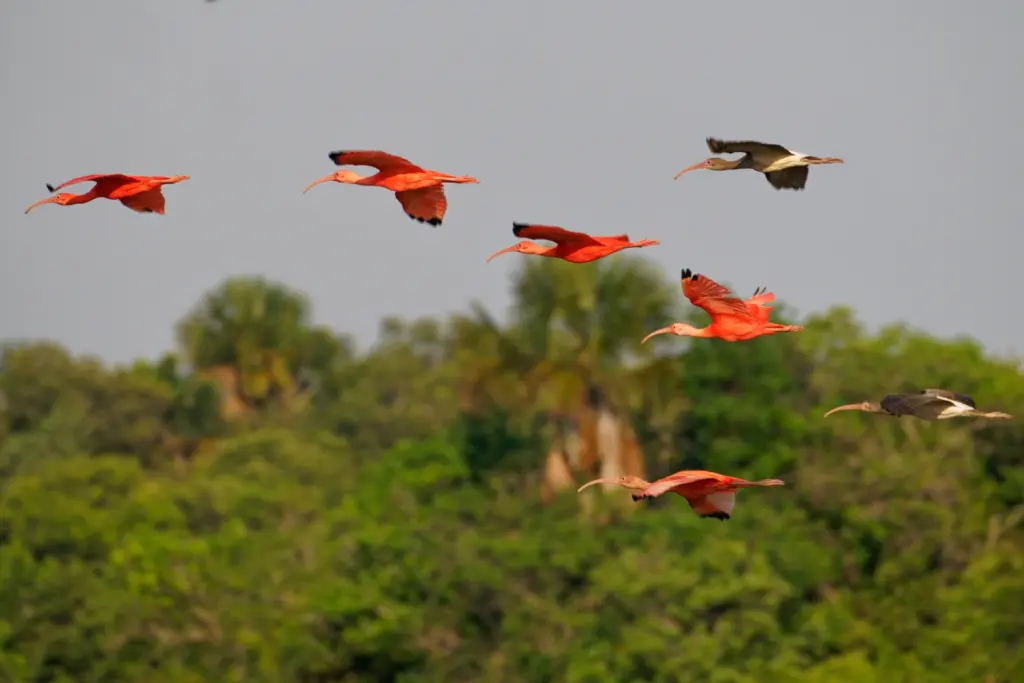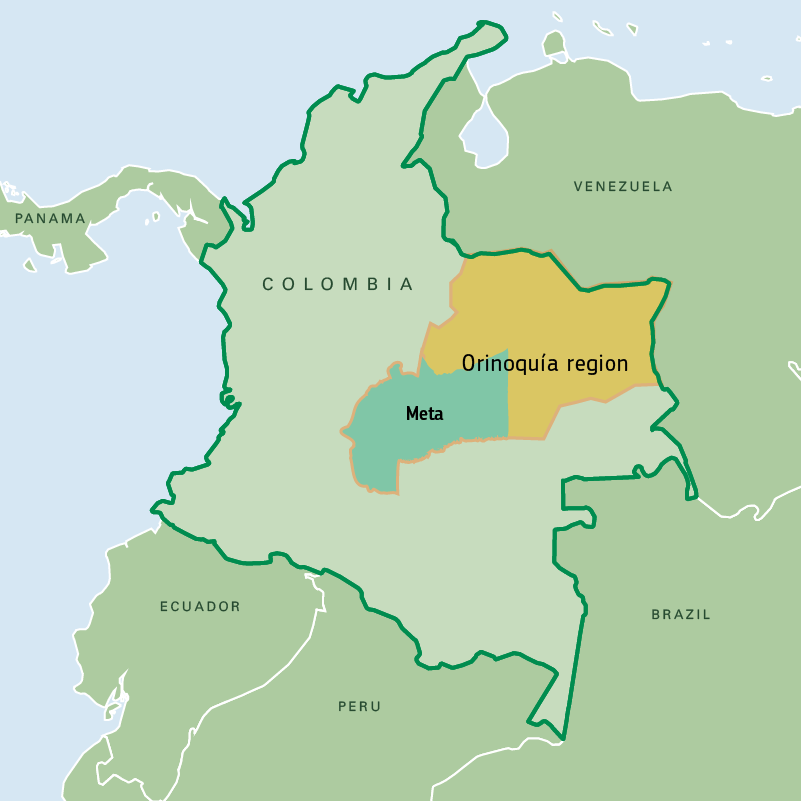The Orinoquía region of Colombia is one of the world’s rarest tropical savannah ecosystems. Stretching 880,000 km2 across the Arauca, Casanare, Meta, and Vichada departments, Orinoquía encompasses a lush landscape of mountains, foothills, floodplains, and wetlands. The region is known for its rich biological diversity and charismatic wildlife like the vibrant scarlet ibis, jaguar, river dolphin, and endangered Orinoco crocodile. But like most biodiversity hotspots, over-exploitation and unsustainable land use have placed immense pressure on Orinoquía’s natural resources.

As Colombia emerged from decades of armed conflict, Orinoquía gained a spotlight as the growing frontier for agriculture production. Today, the region is the nation’s highest producer of corn, soy, rice, and livestock — all of which have reshaped the natural landscape. Deforestation and habitat fragmentation threaten the regional connectivity of the Andes Mountains, Amazon, and Orinoquía, placing biodiversity in the crossfire. While Colombia strives to implement nature-based solutions to meet its 30×30 commitments, smallholder farmers in Orinoquía are playing their part by adopting regenerative agricultural practices to balance the demands of food security and economic livelihood with conservation.
Adopting regenerative agriculture in Meta
Smallholder farmers in Meta are partnering with Rare to learn and adopt regenerative agriculture and livestock practices, a holistic method of cultivating the land to ensure climate resilience, landscape prosperity, and natural productivity. Through its Lands for Life program, Rare uses a unique behavioral science approach to mobilize extension agents, local leaders, and farmers to address conservation challenges and inspire community members to become agents for change.
Changing deeply entrenched behaviors isn’t easy, but it’s essential for developing the long-term resilience of natural ecosystems that promote food security and ecological prosperity,” says Monica Varela, Rare President of Lands for Life.
Rare’s multi-faceted approach incorporates strategies for farmers at all levels of adoption to drive community-led change. Practices like composting, planting riparian forests, and integrating natural pest management differ slightly across geographic locations, but the primary intention remains the same: prioritize soil health for agrobiodiversity.
Momo Lozano, Director of Agriculture Development at Rare, works closely with local farming communities in Meta to help individuals understand the value of good soil. “Maintaining soil health is vital because millions of microorganisms within the soil are responsible for nutrient cycling, water filtration, and carbon sequestration from the atmosphere,” she explains. “Functioning ecological systems begin with healthy soil.”
Restoring biodiversity and ecosystem connectivity
Since the 2023 cycle, Rare has enrolled 1,843 farmers in the Lands for Life program. A staggering 99% of producers acknowledge their active involvement in habitat diversification efforts within their farm areas and among this total, 79% demonstrated their commitment by planting trees to enhance habitat and strategically connect landscapes across properties.

Restoring and protecting habitats like water springs, forests, creeks, and grasslands strengthens the overall ecological resilience and functionality of the larger Orinoquía landscape. For proof of impact, farmers need not look further than the wildlife in their backyards.
José Jaime Tejada Saenz, a farmer in the Playa Rica village in El Castillo municipality of Meta, has transformed his farmland through regenerative agriculture practices learned in partnership with Rare.
The truth is, change has been seen,” he says. “Even the neighbors themselves have been impressed because this little farm was a piece of land that had no trees, no food for the animals.”
José describes how the landscape is now bustling with wildlife — spectacled bears, monkeys, sloths, armadillos, and curlews frequently visit the farm. He’s also noticed an increase in bees and other pollinators contributing to garden productivity. “So yes, there has been change and it has been very powerful for us here on the farm.”
Lands for Life is evaluating opportunities to scale ecological restoration across the Orinoquía region. Rare aims to enhance communities’ capacities to improve their territorial governance and efficiently manage and monitor natural resources. Local communities can further strengthen climate resilience and regional connectivity through the long-term adoption of regenerative agriculture practices, ultimately improving economic livelihood and securing safe corridors for biodiversity to thrive.
